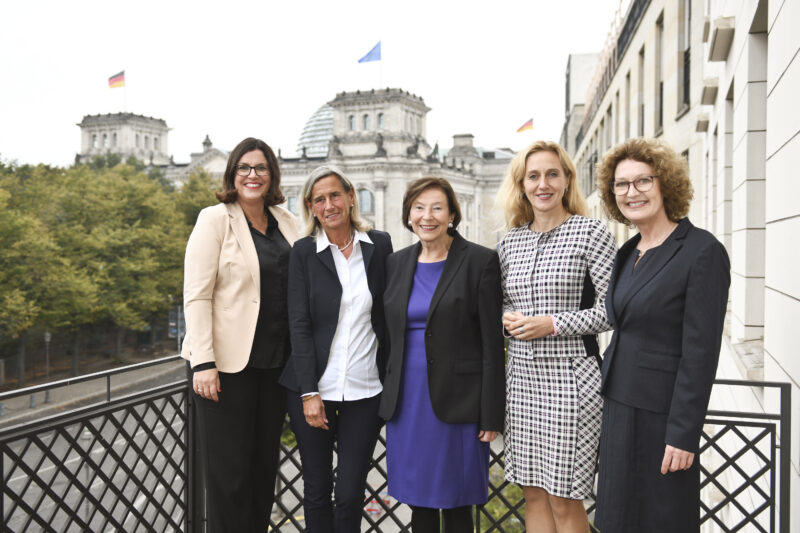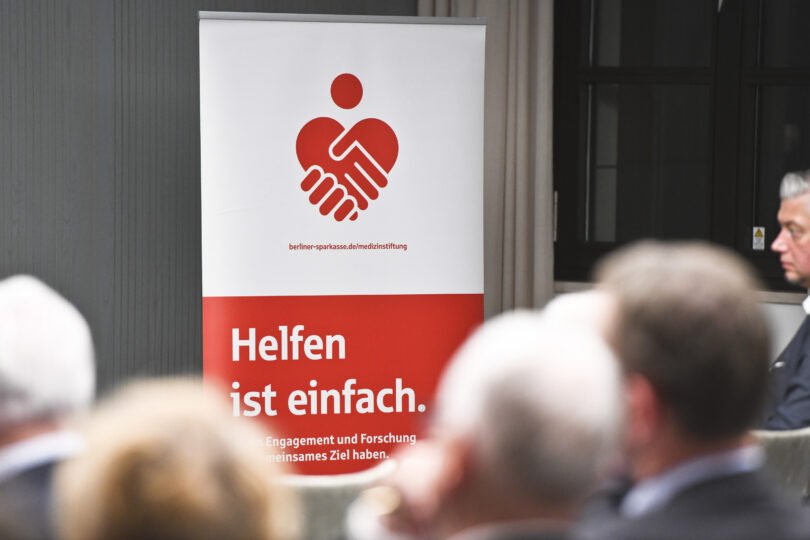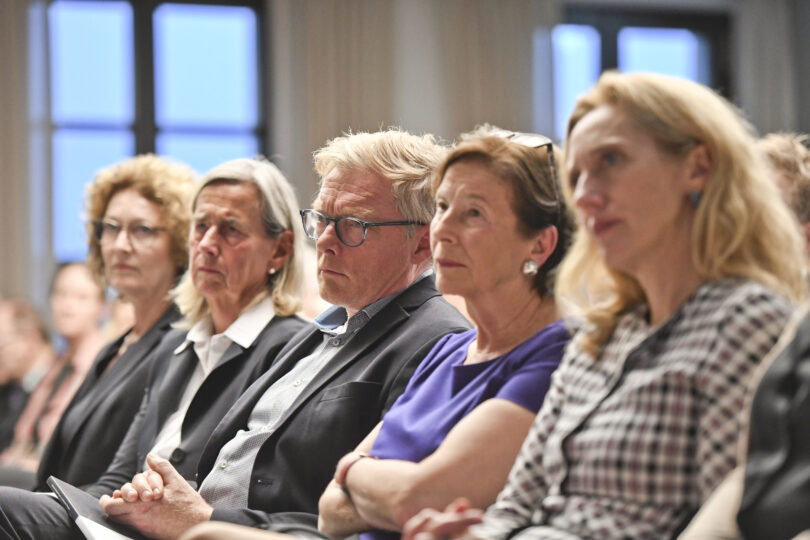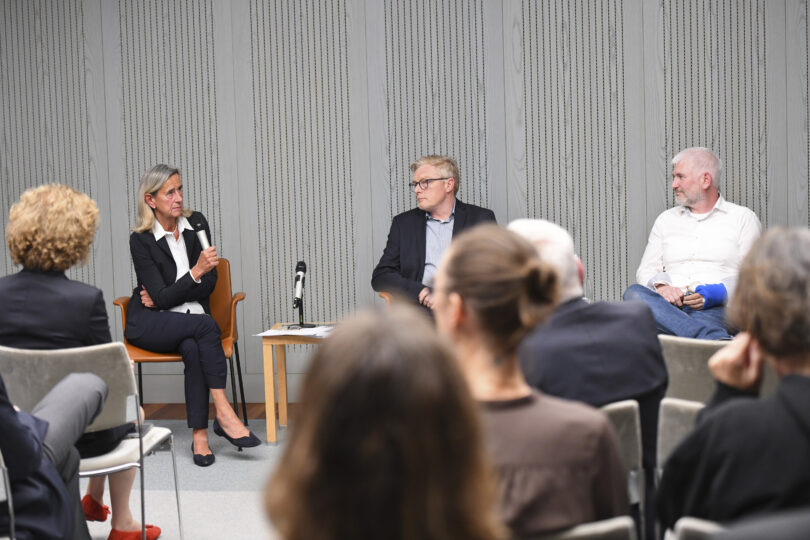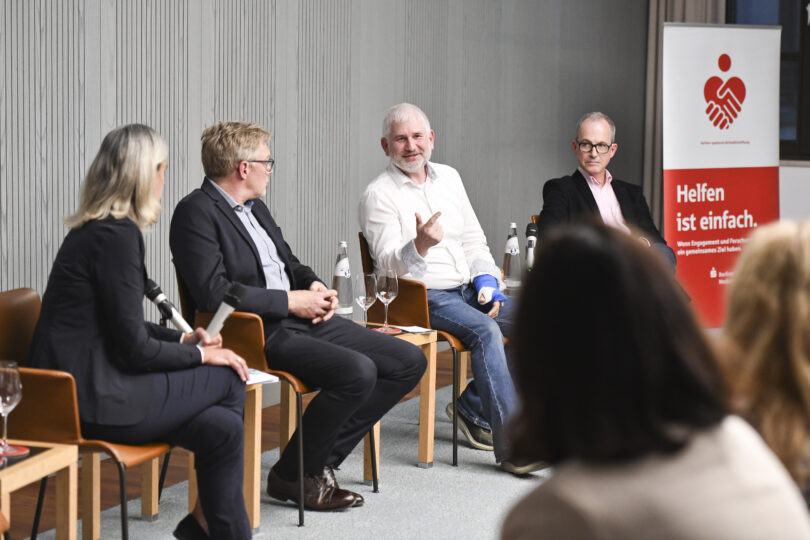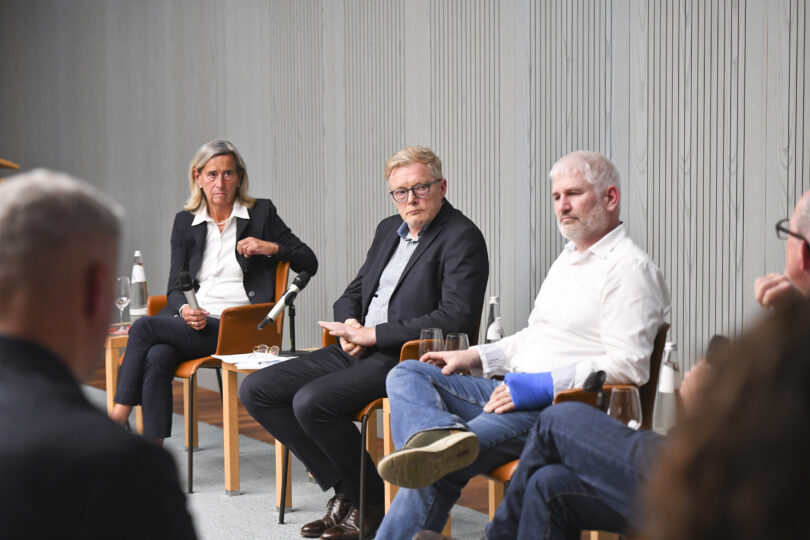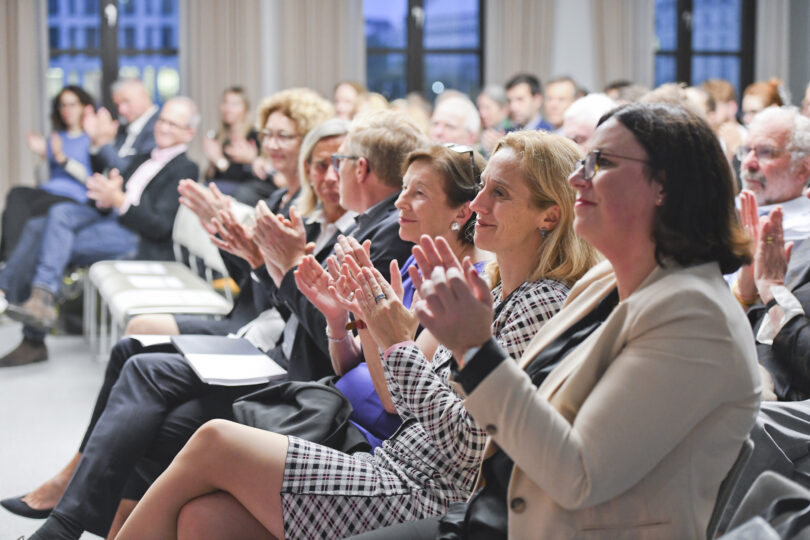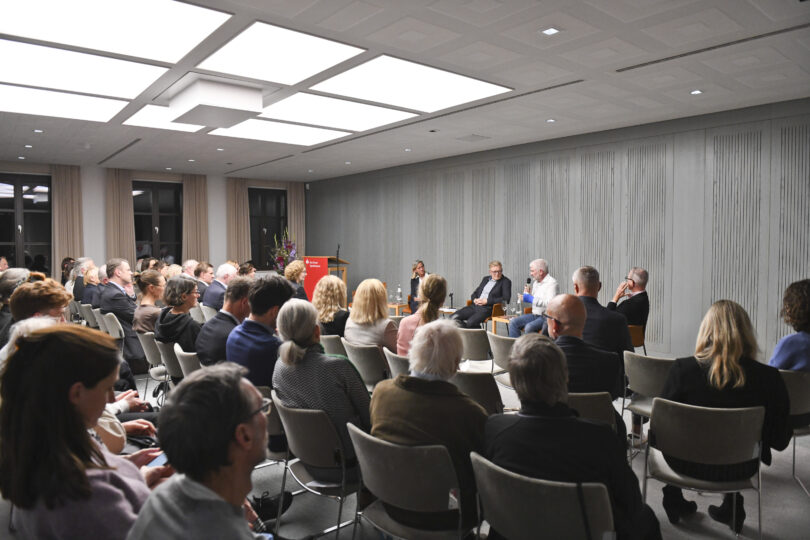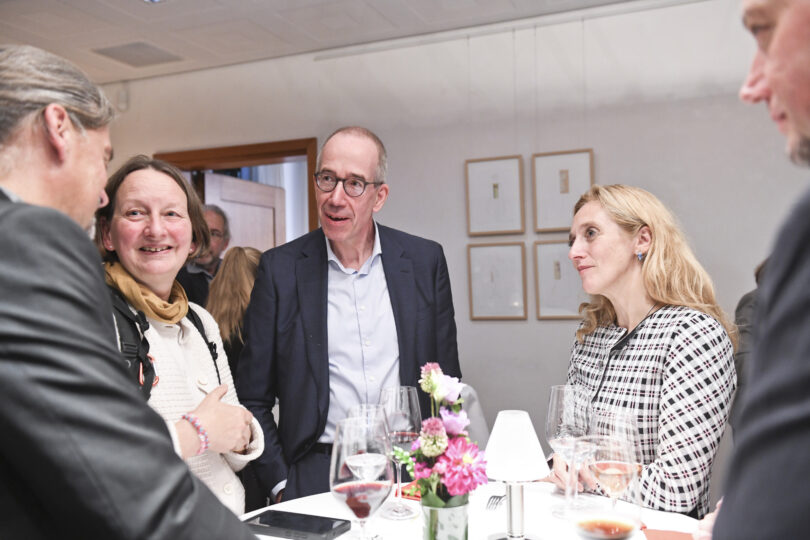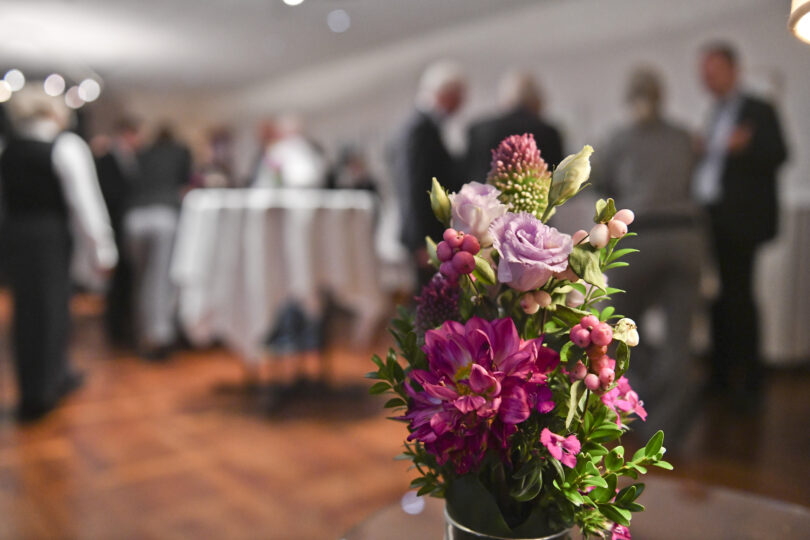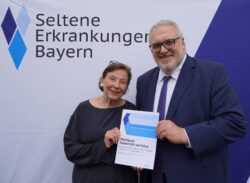‘If you want to go fast, go alone. If you want to go far, go with others.’
Eva Luise Köhler could not have described the joint initiative of the Berlin Sparkassenstiftung Medizin and the Eva Luise and Horst Köhler Foundation more aptly. The cooperation focuses on making the ‘medicine of tomorrow’ accessible to people with rare diseases. Prof. Dr. Annette Grüters-Kieslich, Chairwoman of the Eva Luise and Horst Köhler Foundation, explained why research into rare diseases is so important: “Basic research into rare genetic defects is often the key to drugs and therapies for common diseases. She quoted Article 2, Paragraph 2 of the German Basic Law: ‘Everyone has the right to life and physical integrity’ and emphasised that this also applies to people with rare diseases. Rare does not mean unimportant!
This was impressively demonstrated by Michael Scholz, father of 13-year-old Lotte, who lives with the rare genetic metabolic disorder metachromatic leukodystrophy (MLD). In a moving presentation, he highlighted the profound impact of the disease on his family’s life – and the great hope that those affected have for targeted research and the development of therapies.
Panel discussion on the opportunities and challenges of the National Strategy
The recently presented National Strategy for Gene- and Cell-Based Therapies promises the development of therapies, but there are still challenges to be overcome on the way to implementation. In the panel discussion that followed, moderated by Prof Dr Grüters-Kieslich, Michael Scholz, Prof Dr Christopher Baum, Berlin Institute of Health (BIH) and Prof Dr Martin Hildebrandt, Ethics Commission Berlin, discussed what these challenges are and what solutions might be. Michael Scholz quickly made it clear that the main issue for patients is how to pay for new forms of treatment. Where will the money come from, who will bear the immense costs if a therapy is available but the health insurance refuses to pay?
Ms Grüters-Kieslich added: ‘Research and drugs are expensive, but you have to consider the total cost when a whole family is affected. The loss of work for the caring parents and the cost of care over the years must be set against the therapy. The bureaucracy and long approval processes in Germany are also a problem, Michael Scholz stressed. It should not be the case that seriously ill patients have to travel abroad for treatment because a long-recognised therapy has not been approved in Germany?
Germany does not have a knowledge problem, but an implementation problem,” said Christopher Baum, and Martin Hildebrandt added: “Sometimes you have to jump, and it’s true that the ethics committee may not jump as well as it could. All agreed that availability is key: knowledge needs to be systematically gathered. There is an urgent need to build databases and optimise technologies to make therapy development more cost-effective. The common goal should be to build a bridge between academia and industry and to consciously organise the interaction with society. Another important point is that politicians can create the framework conditions, but the implementation and costs must be borne by society as a whole.
Afterwards, the guests and panellists got together for a get-together in the welcoming rooms of the Max Liebermann Haus and exchanged ideas in a relaxed atmosphere. It was a successful and very personal evening, which once again demonstrated that strong and resilient networks and the financial and philanthropic commitment of civil society are essential to achieve better care for people with rare diseases. We would like to thank all guests and participants for their interest and contribution and invite you to join us on this important journey.
